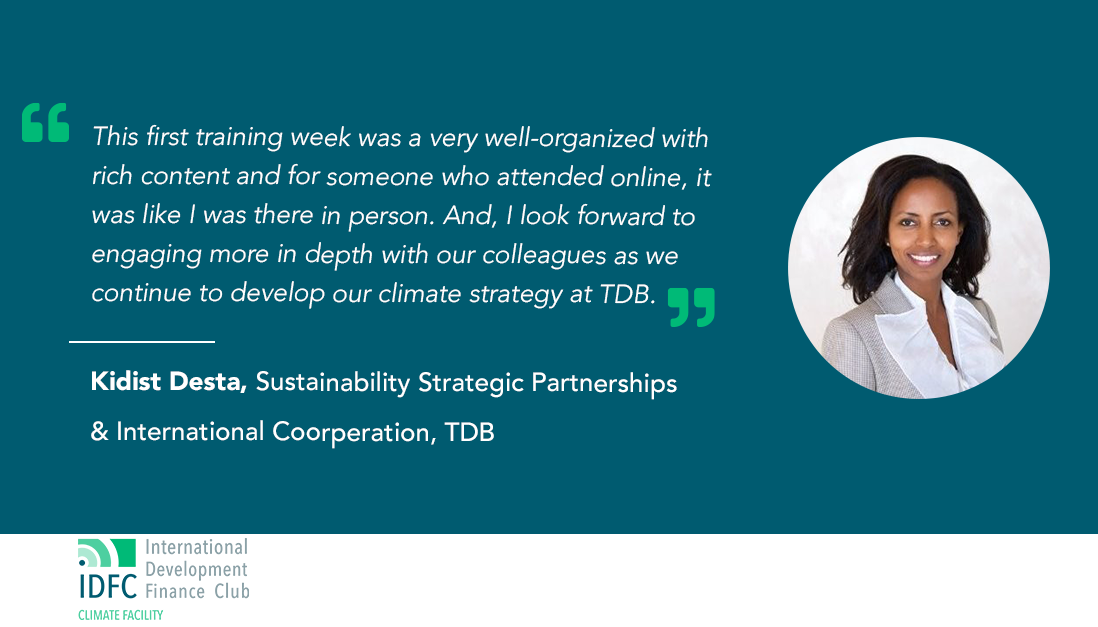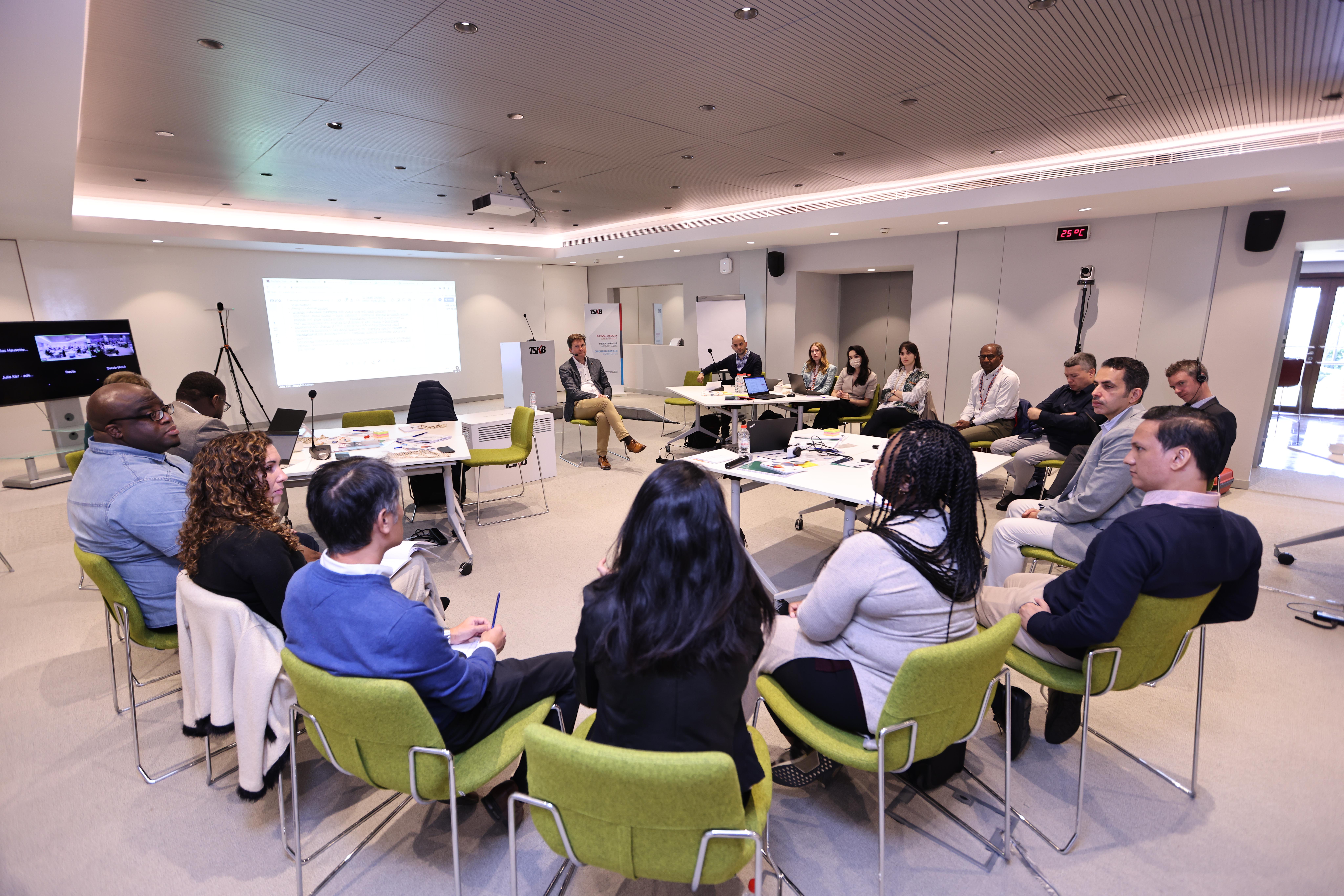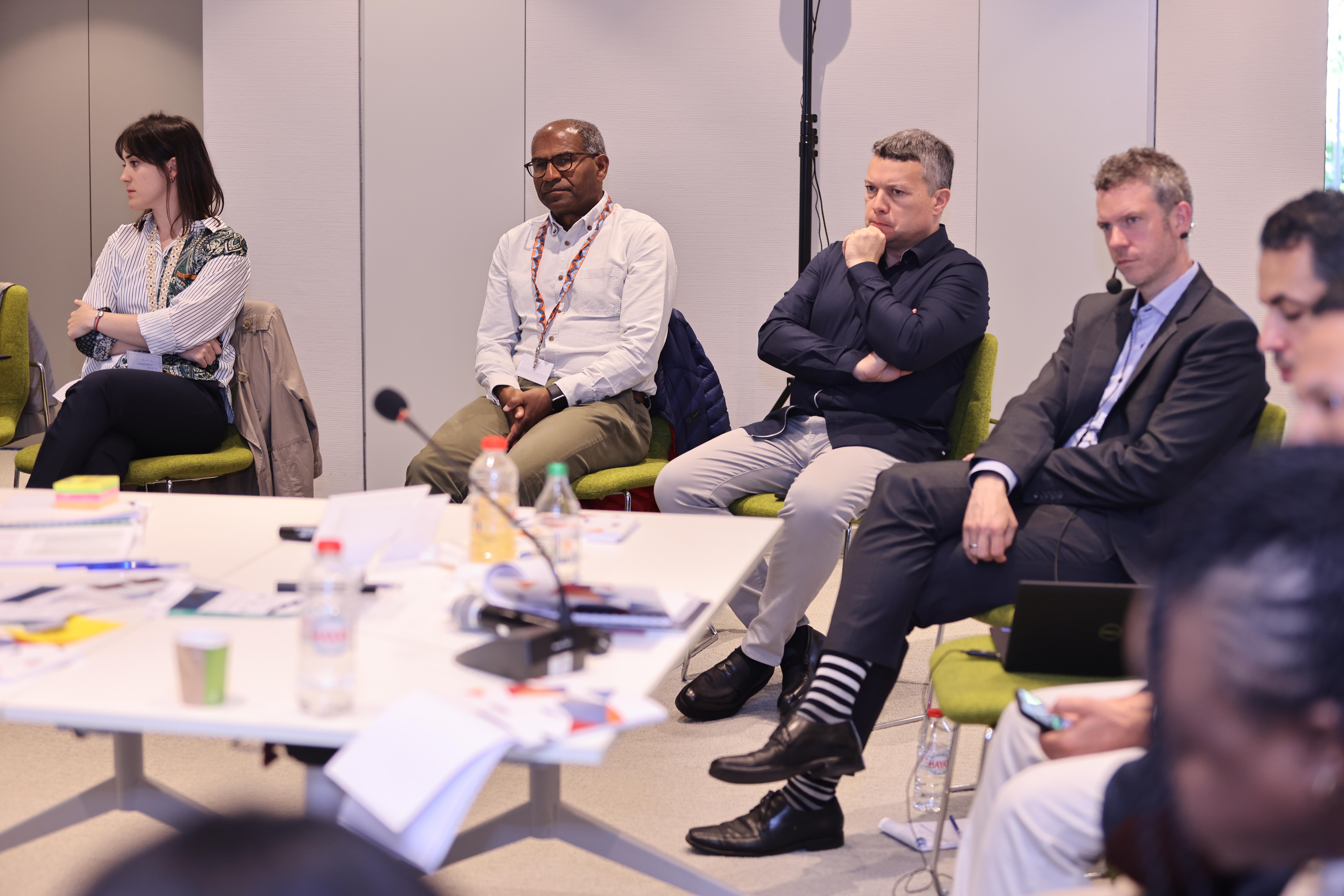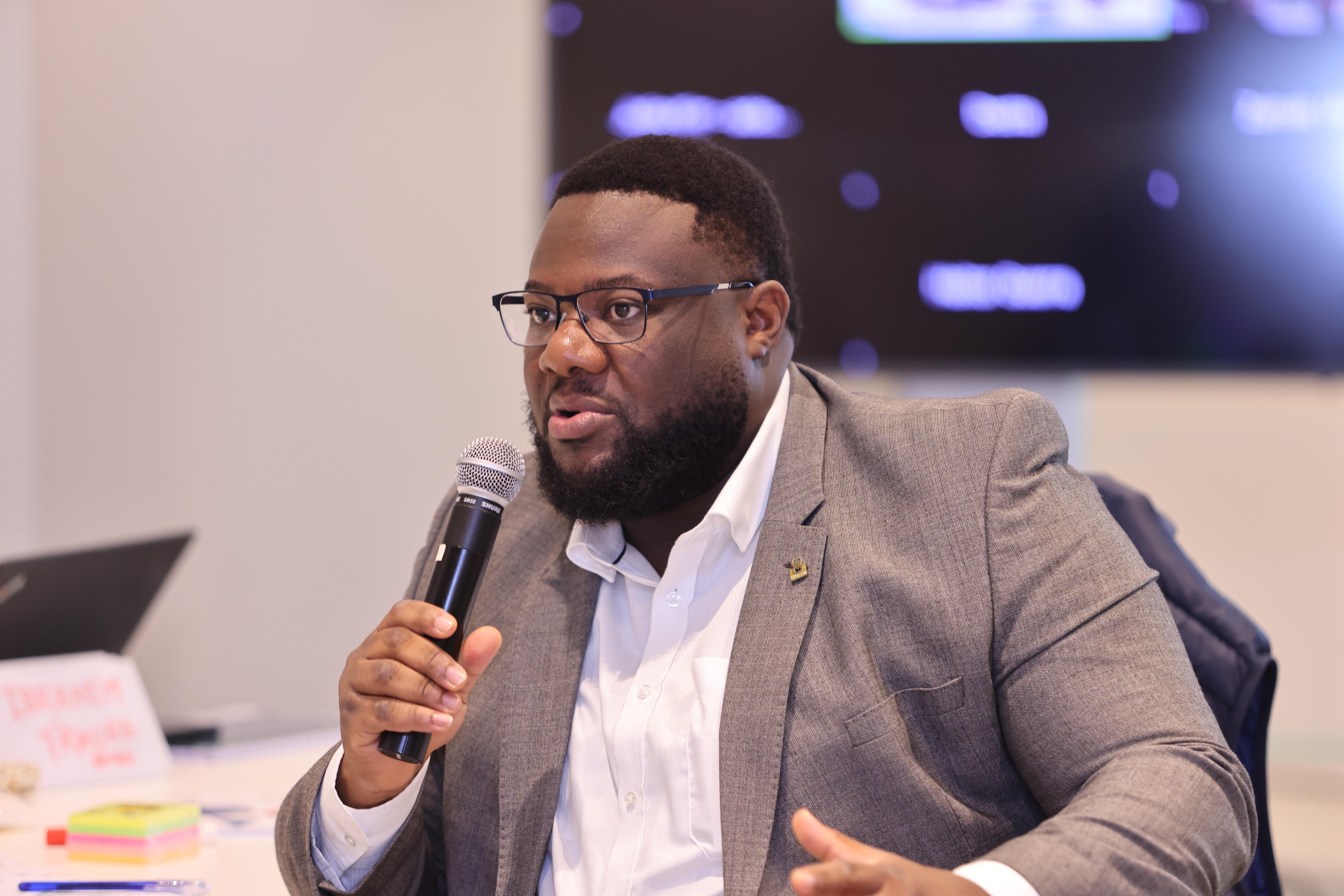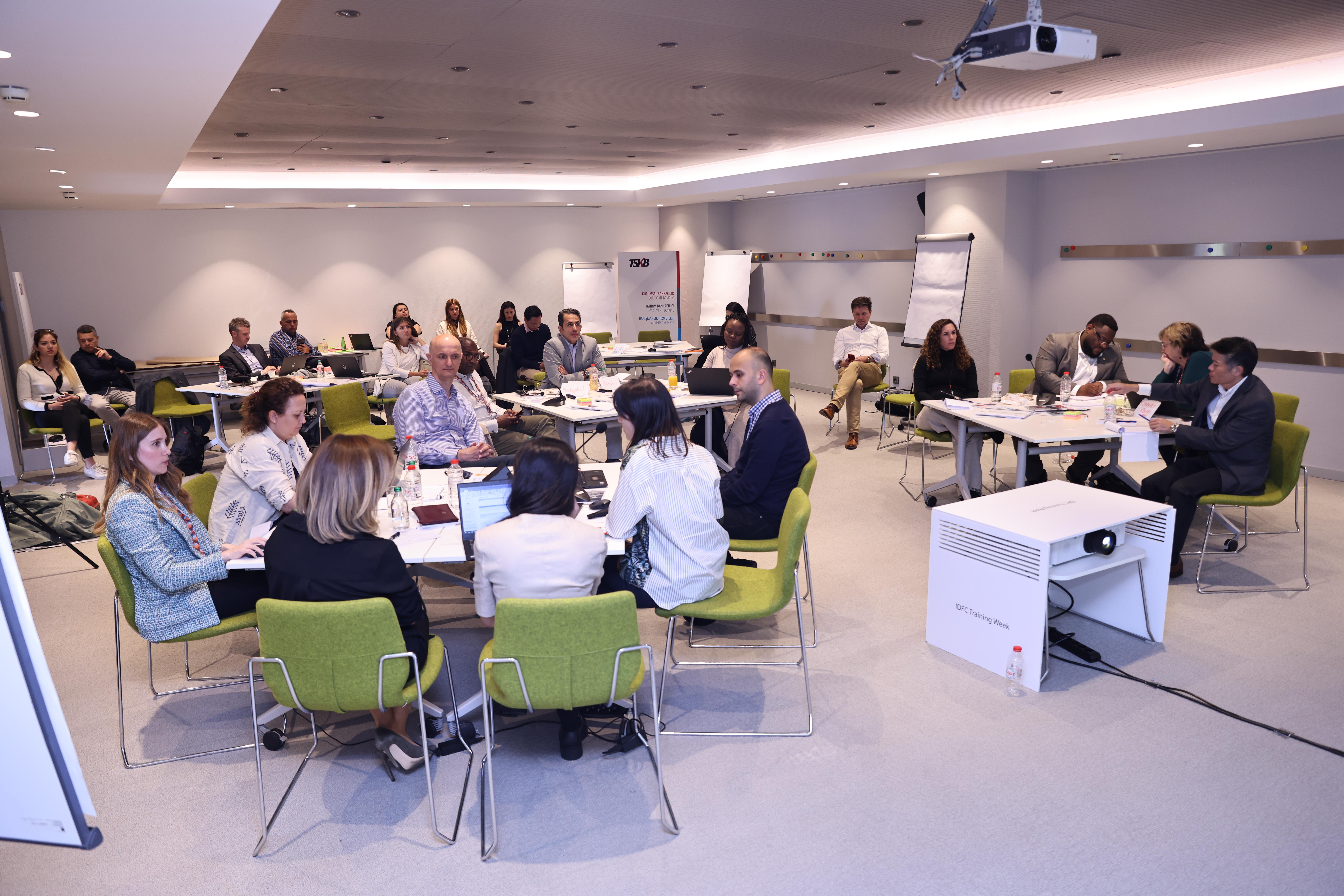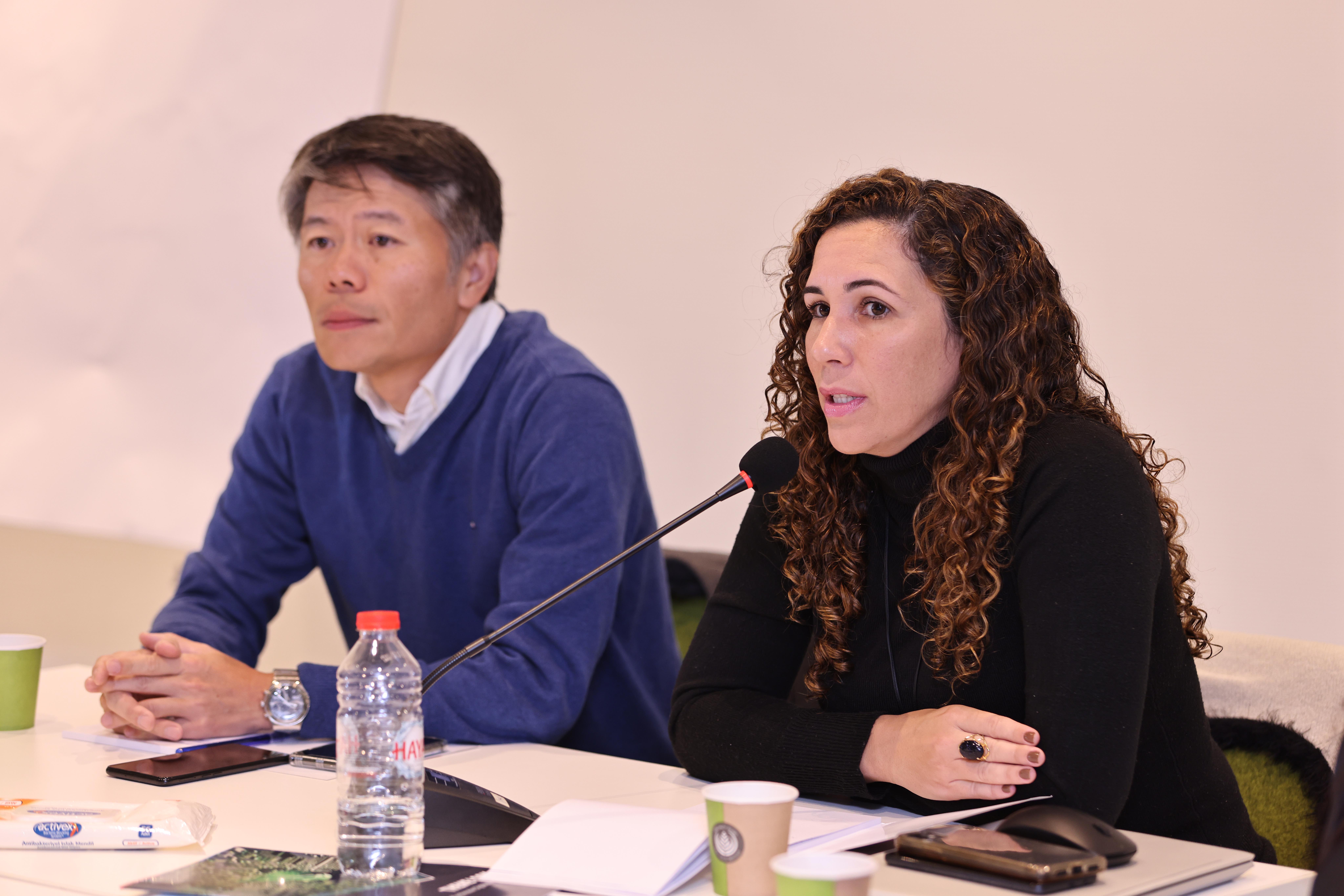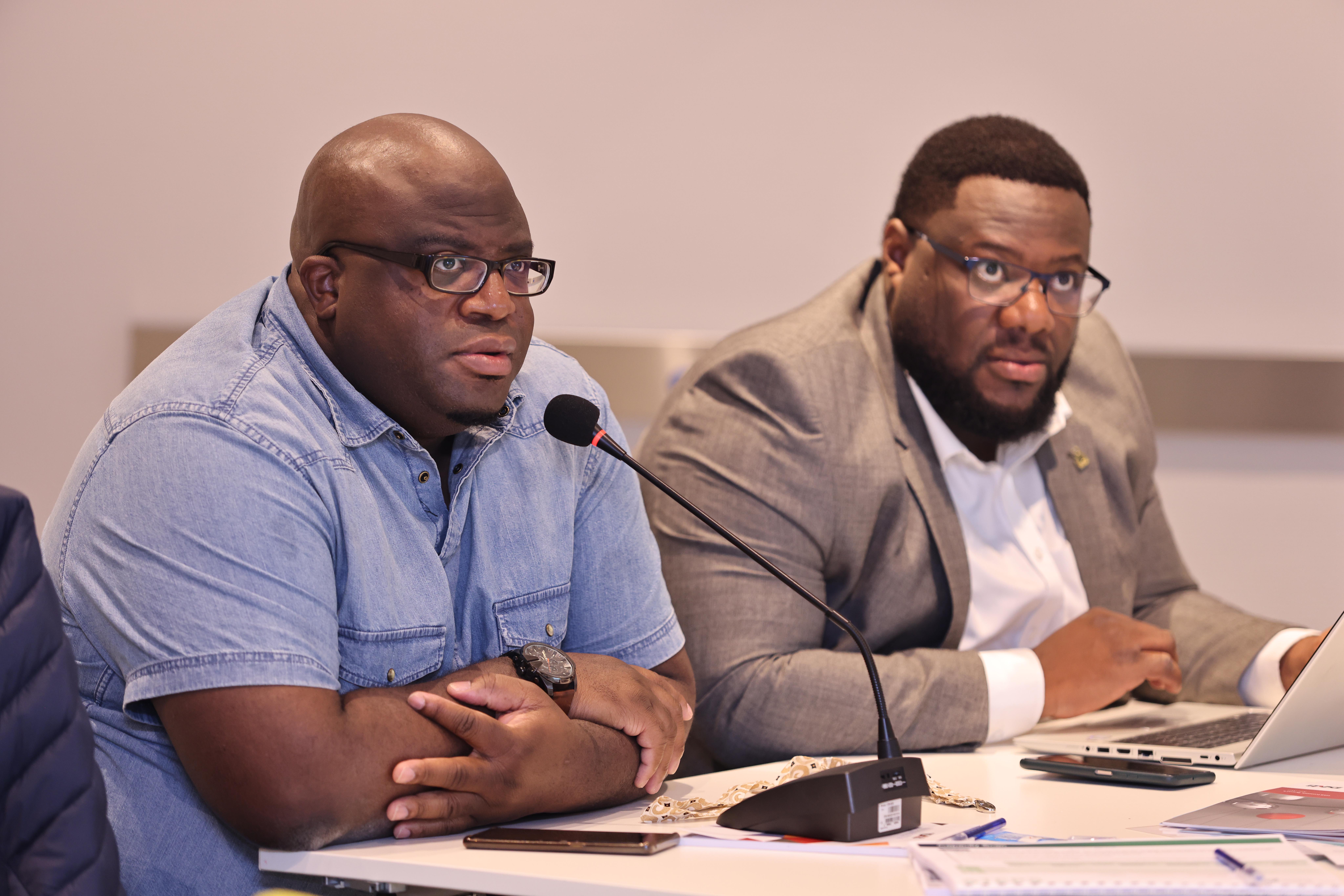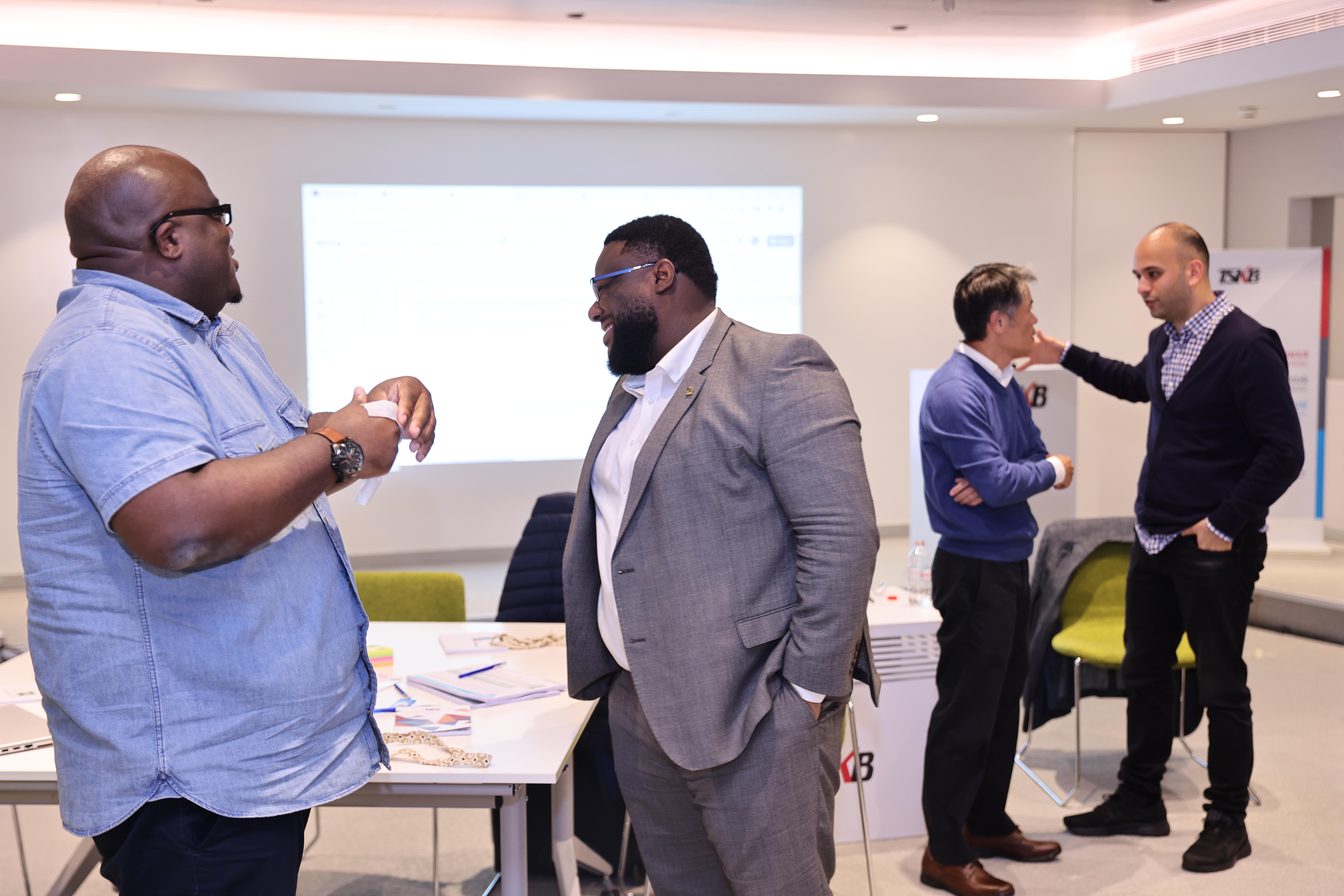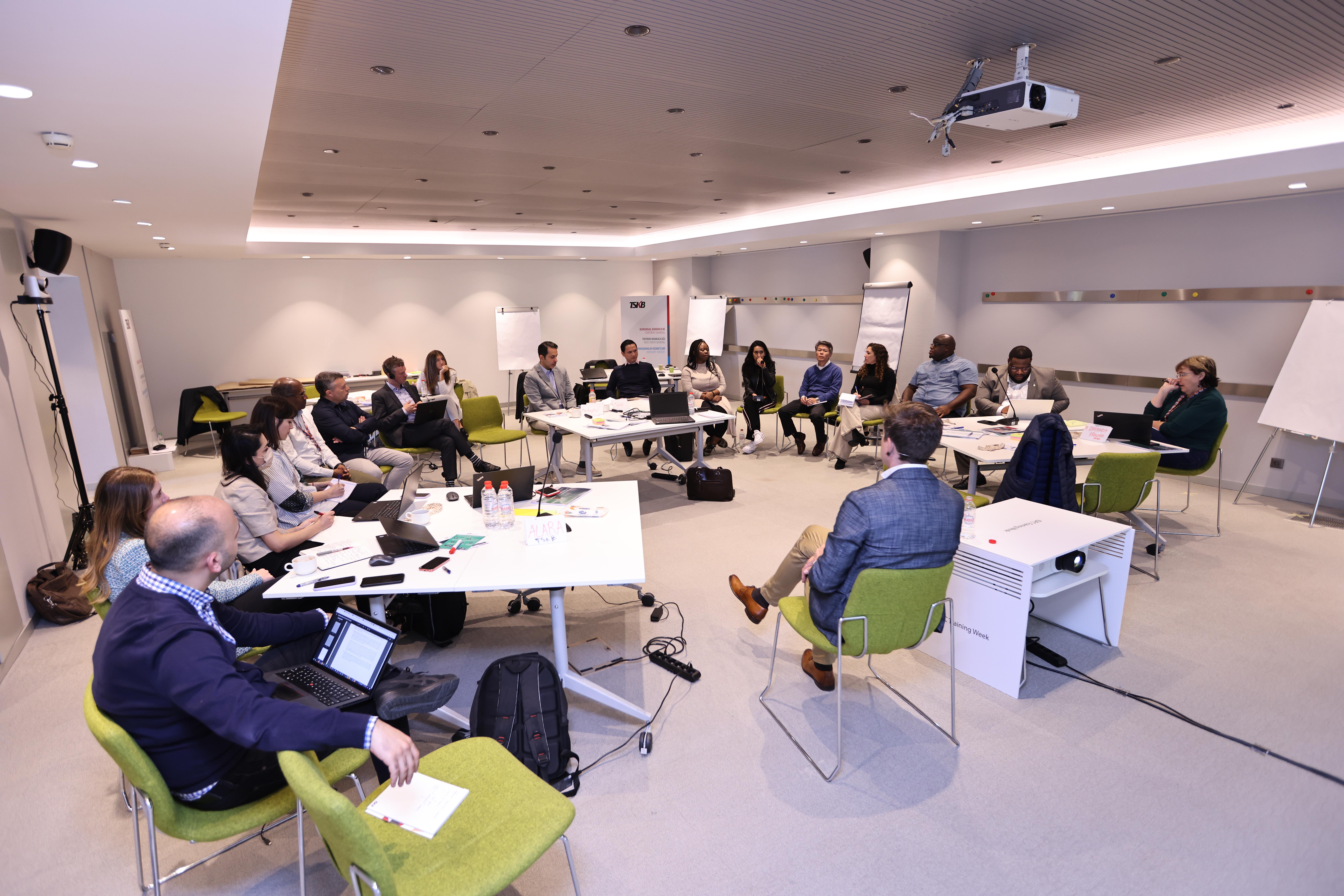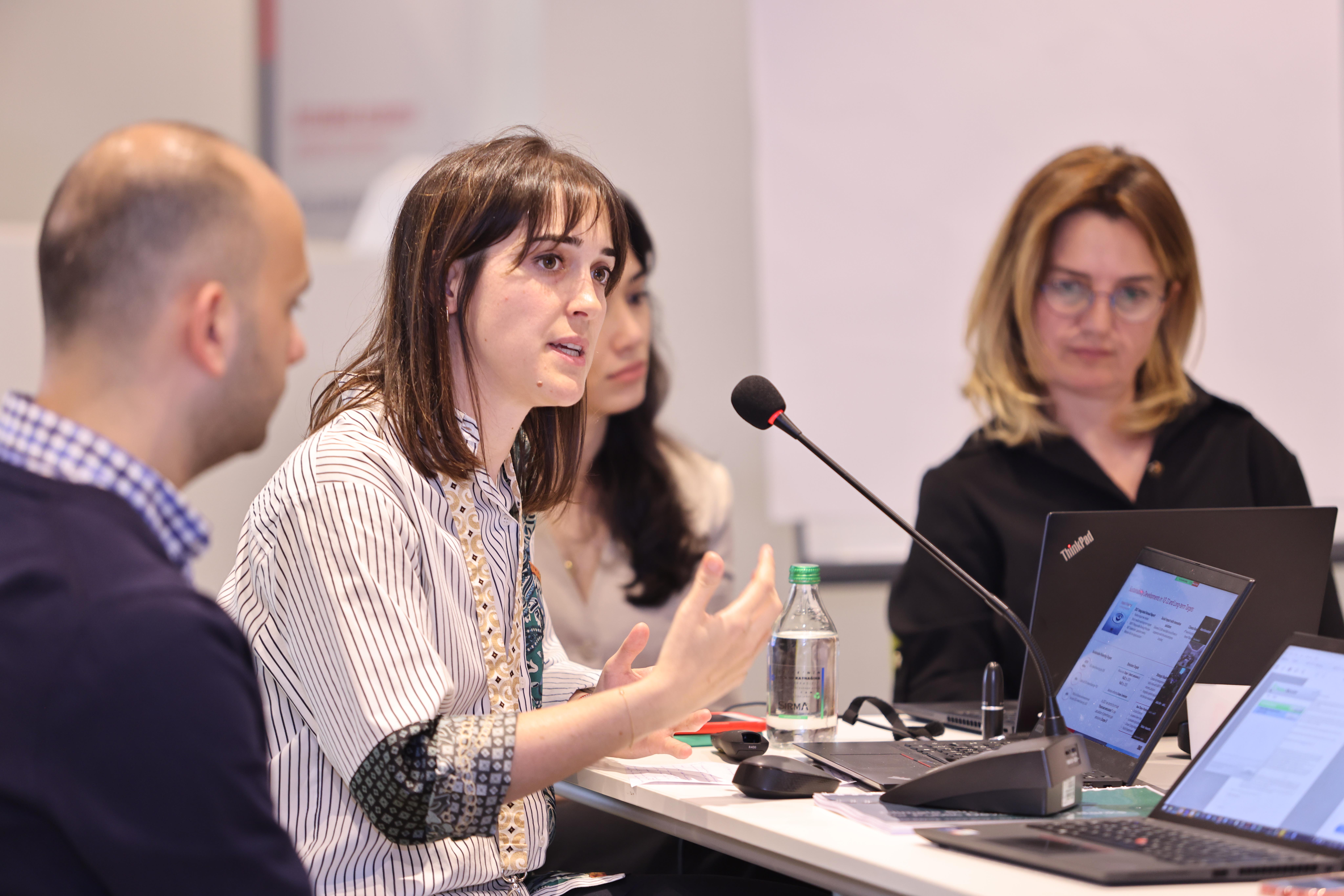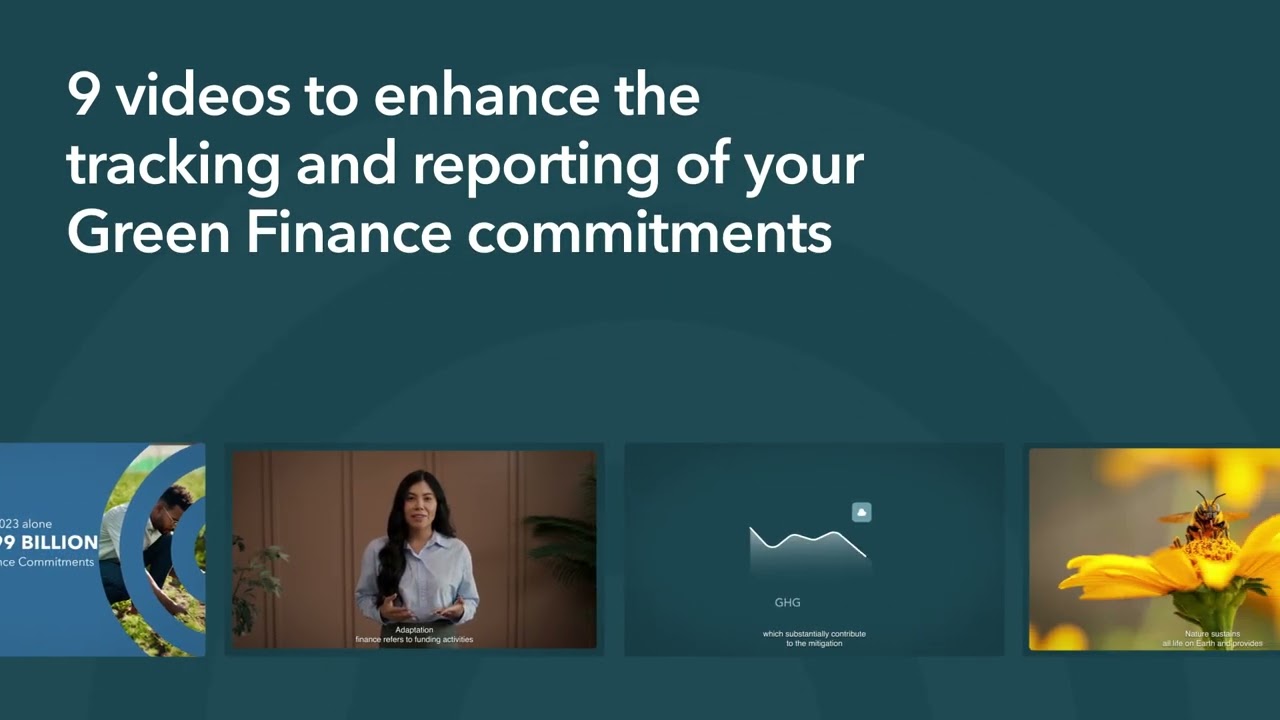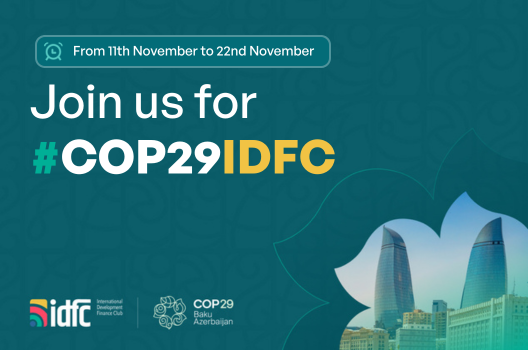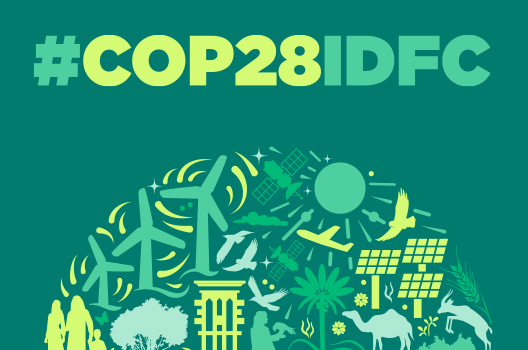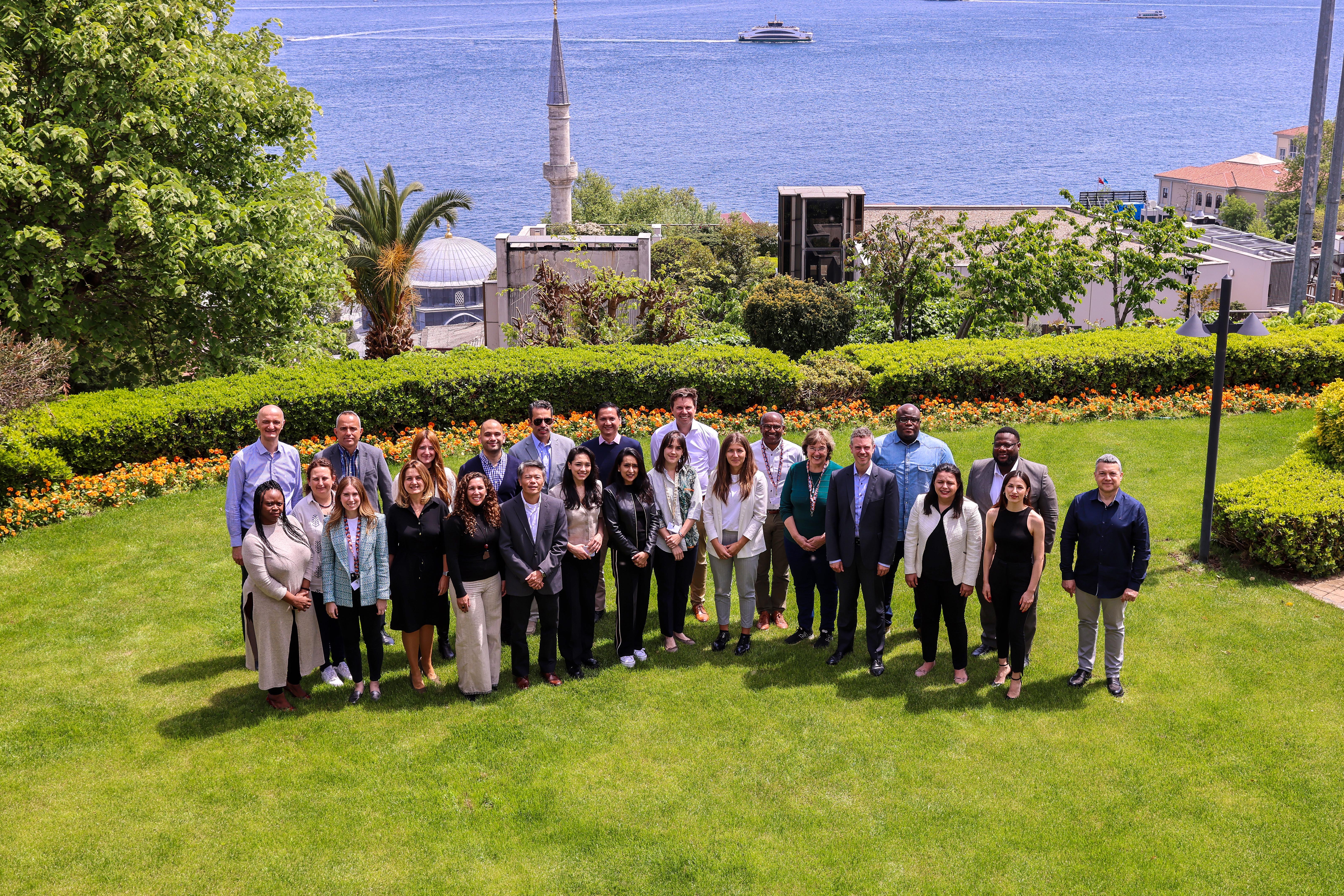
Climate Facility’s First Training Week Hosted by TSKB in Istanbul
10 May 2022The Training Week took place from Monday, 9 May to Friday, 13 May 2022 and gathered more than 12 member institutions and 34 climate experts to introduce the Climate Strategy and Physical Risk Assessment Toolkits
As a basis to strengthen capacities among IDFC member banks and to support the Knowledge and Sharing activity line, the IDFC Climate Facility is implementing an IDFC Climate Toolbox built toolkit-by-toolkit.
This first Istanbul Training Week introduced the first two toolkits on climate strategies and climate risk assessment.
 Accordingly, the aim of the Training Week was to facilitate capacity building around the topics of Climate Strategies and Physical Climate Risk Assessment, by the use of toolkits to familiarise the participants during workshops and peer learning sessions. The participants learned about all aspects of a climate strategy in a development finance institution and were supported in defining a way forward on how to develop a climate strategy for their institution.
Accordingly, the aim of the Training Week was to facilitate capacity building around the topics of Climate Strategies and Physical Climate Risk Assessment, by the use of toolkits to familiarise the participants during workshops and peer learning sessions. The participants learned about all aspects of a climate strategy in a development finance institution and were supported in defining a way forward on how to develop a climate strategy for their institution.
Also, the basic principles and practical application of climate risk assessments were explored and practical knowledge about how to apply them in the own work environment gained.
Besides the workshops, attractive side events such as a field visit and peer exchanges gave opportunities to share experiences and network with other IDFC members.
This Climate Facility Training Week was directed to:
- familiarise the members with all aspects of climate strategy in a development finance institution;
- support them in defining a way forward how to develop a climate strategy for their institution;
- gain an overview of climate risks assessment, its basic principles and some practical application in development finance institutions;
- apply some of the co-creation and development tools and introduced them in their own work environment;
- expand their network and exchange in a structured and facilitated manner with peers during group sessions.
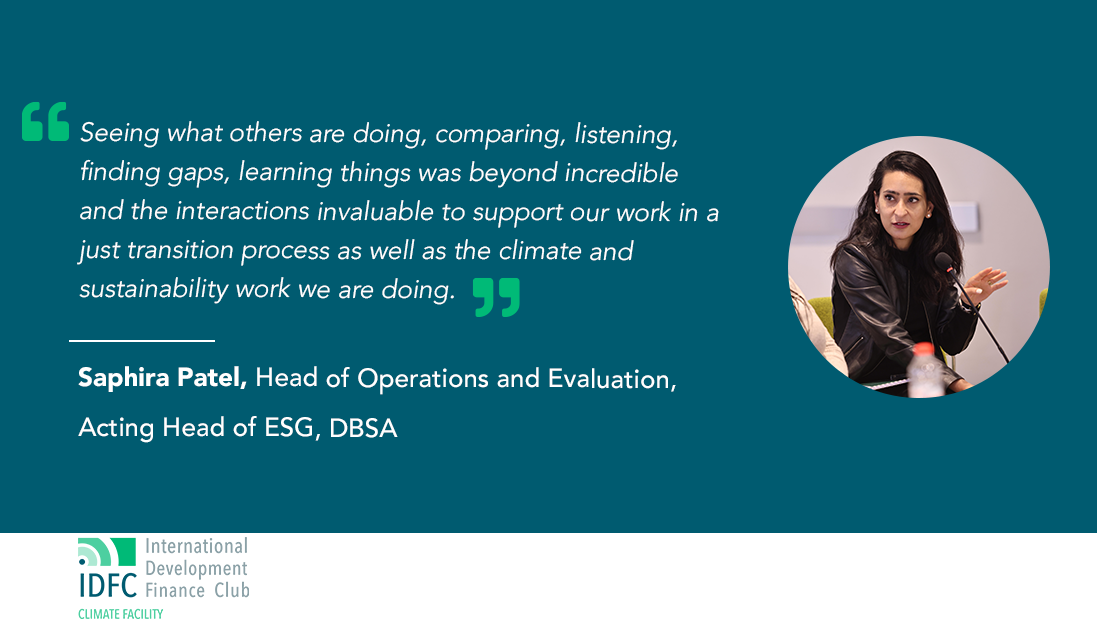
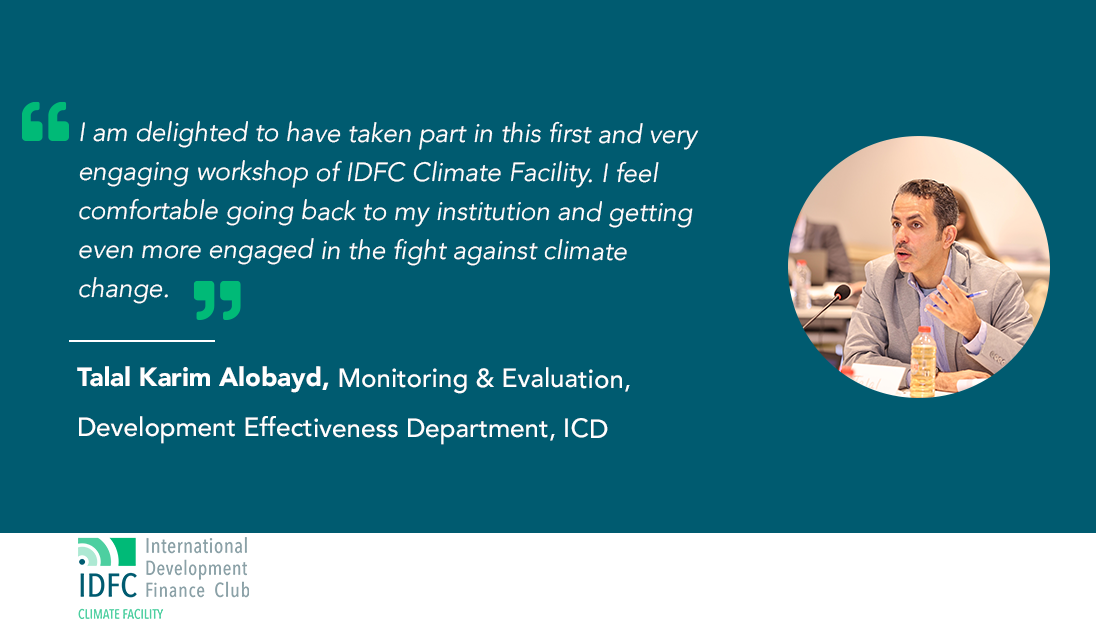
AGENDA
Day 1
- Status Quo of Climate Strategy: Which elements can be included in a Climate Strategy? Where are you currently on your journey towards a Climate Strategy?
- GHG Emission Baseline: Understand the different elements and options to assess the GHG emissions baseline, discuss it among the peers and share experiences.
- Climate Targets: Expert Input on Climate Targets – Claudio Alatorre, AFD
How to define qualitative and quantitative climate targets for a financial institution?
Day 2
- Expert Input : Climate Governance by Dr. Komlanvi Moglo, BOAD – How is the climate governance implemented and structured within an organisation?
- Capacity Scan: Which human resources and technical capacities are required for the successful implementation of a Climate Strategy?
- MRE System Set-up: Which processes of monitoring (M), reporting (R), and evaluation (E) are fundamental when reporting on the targets and objectives of a Climate Strategy?
- Climate Strategy Implementation: How to mainstream a Climate Strategy in a financial institution? Which organisational set-up will facilitate a Climate Strategy implementation?
Day 3
- Climate Strategies Sharing of Experiences & Facilitated Peer Learning
- Climate Risks Assessment Sharing of Experiences & Facilitated Peer Learning
- Field Visit and Real-Life Experiences with TSKB
Day 4
- Introduction to climate risks and physical Climate Risk Assessment: How are climate risks defined? Get familiar with the concepts of risk, including hazards, exposure and vulnerability
- Initial Screening: What is needed for an initial screening? What tools are available?
- Expert Input by Xianfu Lu – Lessons learned and best practices initial and in-depth CRA
- In-depth CRA: How to identify hazards, exposure, vulnerability and risks for your project? How to develop a risk matrix?
Day 5
- Mitigation and Adaptation Measures: How to identify measures to mitigate and adapt to identified climate risks? How to evaluate these measures?
- Expert Input by Adrian Kamenitzer, Deputy Director General and Chief Risk Officer at EIB
– EIB’s climate risk assessment / management framework - Climate Risk Management Plan: How to develop a plan to manage the identified risks with mitigation and adaptation measures?
- Capacity Scan and Roadmap for the Way Forward: What capacities are needed and available in your bank to conduct a CRA? What support is needed? What are the next steps?

